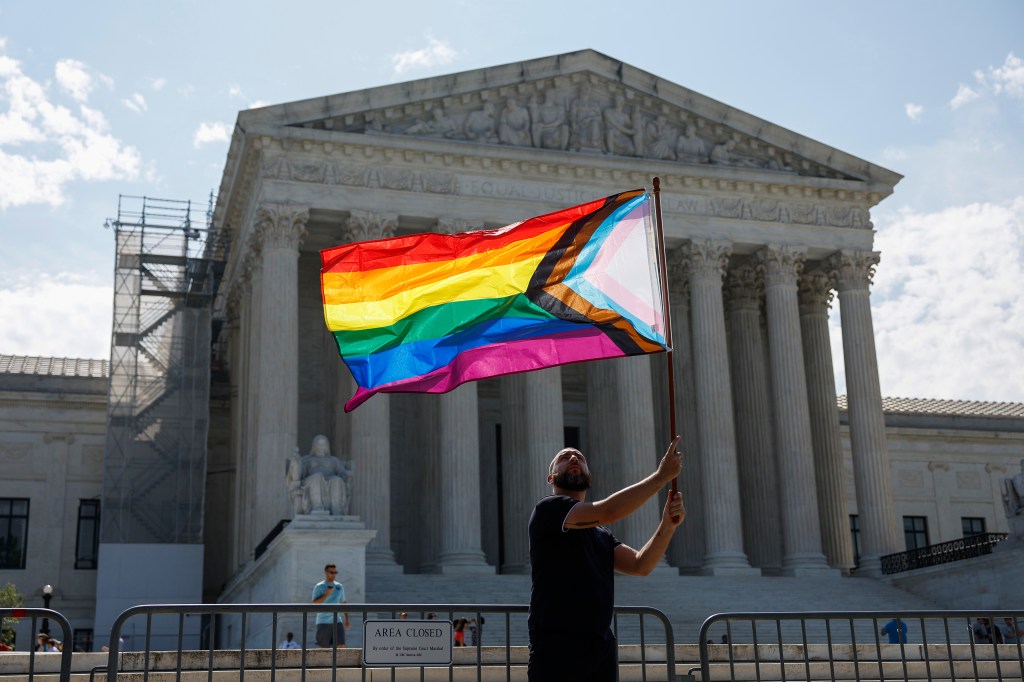Woman claims she was passed over for promotion because she isn’t gay

The Supreme Court will hear arguments in the case (Canva)
The US Supreme Court is set to hear arguments in a straight woman’s ‘reverse discrimination’ civil rights lawsuit after she claimed she was passed over for promotion and demoted in favour of gay colleagues who she says were less qualified than her.
Marlean Ames, 60, worked for a number of years at the Ohio Department of Youth Services and during that time received several promotions and positive evaluations from managers.
However, in 2019 Ames lost out on a promotion for a Bureau Chief of Quality role and was left “shocked and hurt and humiliated” when a month later she was demoted to a lesser position with a $40,000 pay cut.
She alleged the man who took her job and the woman who received the promotion, who are both gay, were less qualified than her and therefore she was “passed over” on the basis of her sexuality.
“That’s how I came to feel that I was being discriminated on because I was straight and pushed aside for them,” Ames told Reuters.

In response, Ames brought a discrimination case against her former employer, claiming the federal department violated Title VII of the Civil Rights Act of 1964.
Title VII specifically protects employees and job applicants from “employment discrimination based on race, colour, religion, sex and national origin”.
The case has previously been thrown out by lower courts, including the US District Court (SD Ohio) and the 6th Circuit US Court of Appeals – who said Ames did not provide appropriate background circumstances to prove the department has a workplace bias which makes it “that unusual employer who discriminates against the majority”.
Ames is challenging this requirement used by some US courts that those from majority groups, such as white and straight people, must “bear a higher burden” of evidence in order to prove their claim of discrimination.
Speaking to Reuters, Ames said: “Discrimination is discrimination.”
“This will hopefully be able to help anyone who feels they’ve been discriminated on to get a fair shake in the courtroom and not have to go to the lengths that I had to go to,” she added.
Edward Gilbert, Ames lawyer, said: “Judges must actually treat plaintiffs differently, by first separating them into majority and minority groups, and then imposing a ‘background circumstances’ requirement on the former but not the latter.
“In other words, to enforce Title VII’s broad rule of workplace equality, courts must apply the law unequally.”
On Wednesday (26 February), the Supreme Court’s majority conservative justices will consider whether it should reopen her lawsuit.

The case poses a significant implications for discrimination law, employers and DEI programmes.
In a legal filing to the Supreme Court, civil rights groups including NAACP Legal Defense & Educational Fund said Ames and Gilbert are asking the justices to “interpret Title VII in a way that ignores the realities of this country’s persisting legacy of discrimination in evaluating disparate-treatment claims”.
The groups when on the say the background circumstances requirement enables courts to account for societal discrimination “against certain minority groups like Black and/or LGBTQ people, and the virtual absence of widespread discrimination targeting certain majority groups like white people and straight people”.
Critics have suggested if Ames wins her case it could open the door to countless ‘reverse discrimination’ cases, especially given the wider context of anti-DEI rhetoric in the US.
DEI has increasingly been under attack in the United States thanks to the efforts of MAGA pundit Robby Starbuck, who has been running a campaign to bring back “sanity to corporate America”, the executive orders signed by Republican president Donald Trump to scrap such policies from all level of government.
How did this story make you feel?

